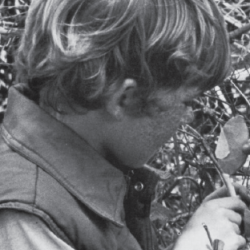Source Institutions
Source Institutions
Add to list Go to activity
Activity link broken? See if it's at the internet archive

In this outdoor activity, learners make models of homes that might protect small animals from the elements, then search living plants for real structures made by small animals. Learners examine what materials real animals use to make their homes, and consider the adaptations that allow animals to construct homes that really protect themfrom wind, wetness, and predators. Learners also explore whether certain animal homes damage animals' host plants. At the end of the activity, all animals are released to their "home" plants.
- 30 to 45 minutes
- 45 to 60 minutes
- $10 - $20 per group of students
- Ages 8 - 14
- Activity, Lesson/Lesson Plan, Model
- English
Quick Guide
Materials List (per group of students)
- hand lenses
- plastic bags
- small paper plates
- pairs of scissors
- pencils
- small handfuls of rice or birdseed
- white glue
- tape
- thread
- cotton
- colored flagging
- large brown shopping bags
Subjects
-
Life Sciences
-
Diversity of Life
- Plants
- Animals
-
Ecology
- Biodiversity
-
Evolution
- Evidence for Evolution
-
Diversity of Life
-
The Nature of Science
-
The Scientific Process
- Conducting Investigations
- Formulating Explanations
- Communicating Results
-
The Scientific Process
Informal Categories
- Animals
- Nature and Environment
- Outdoor Activity
Audience
To use this activity, learners need to:
- see
- be mobile
- touch
Learning styles supported:
- Involves teamwork and communication skills
- Involves hands-on or lab activities
Other
This resource is part of:
Access Rights:
- Free access
By:
Rights:
- All rights reserved, The Regents of the University of California, 1982
